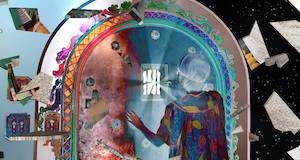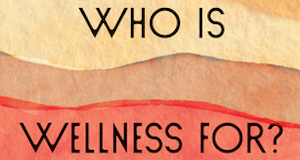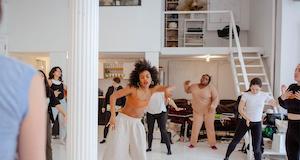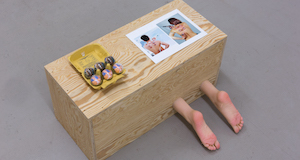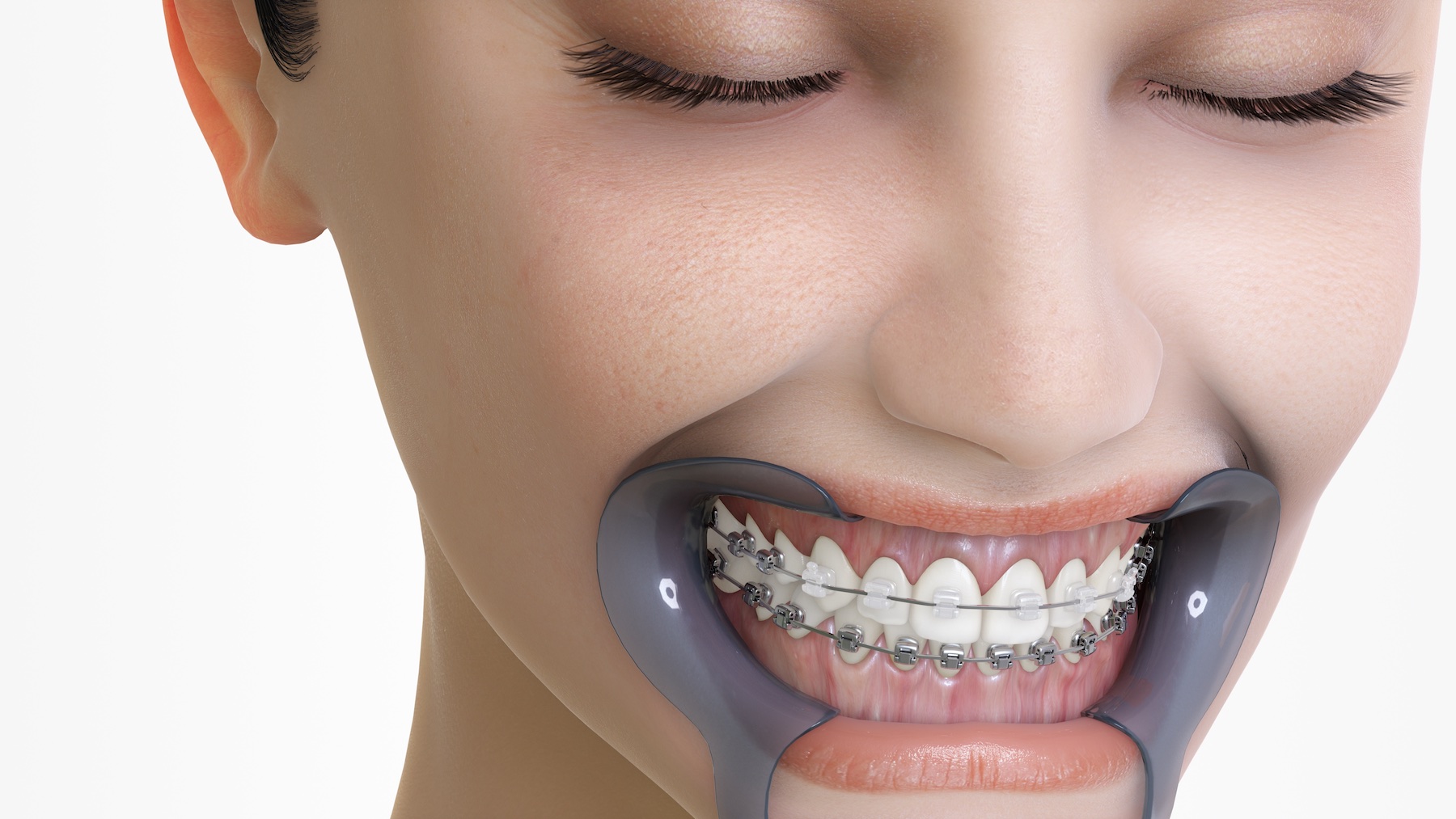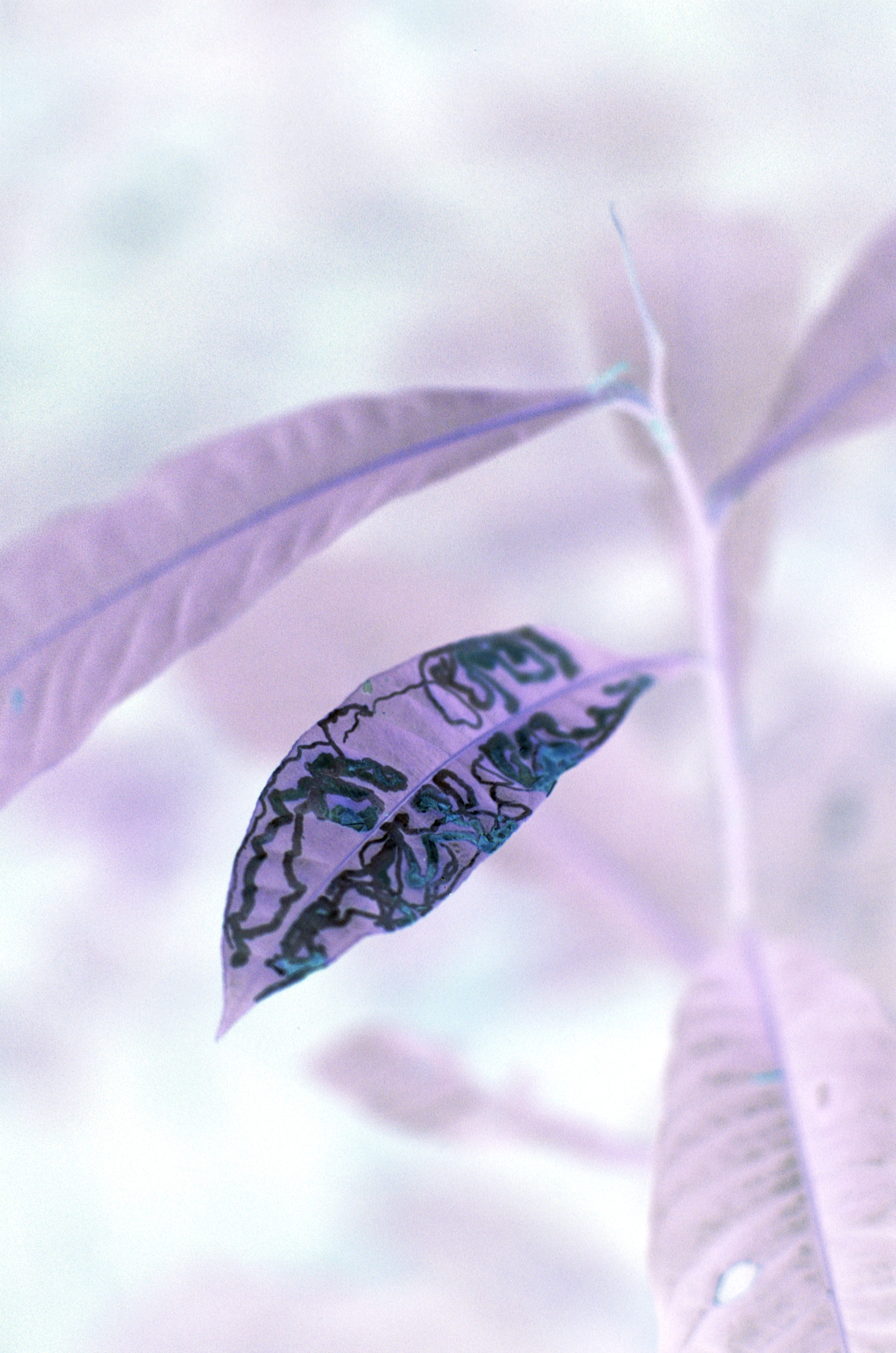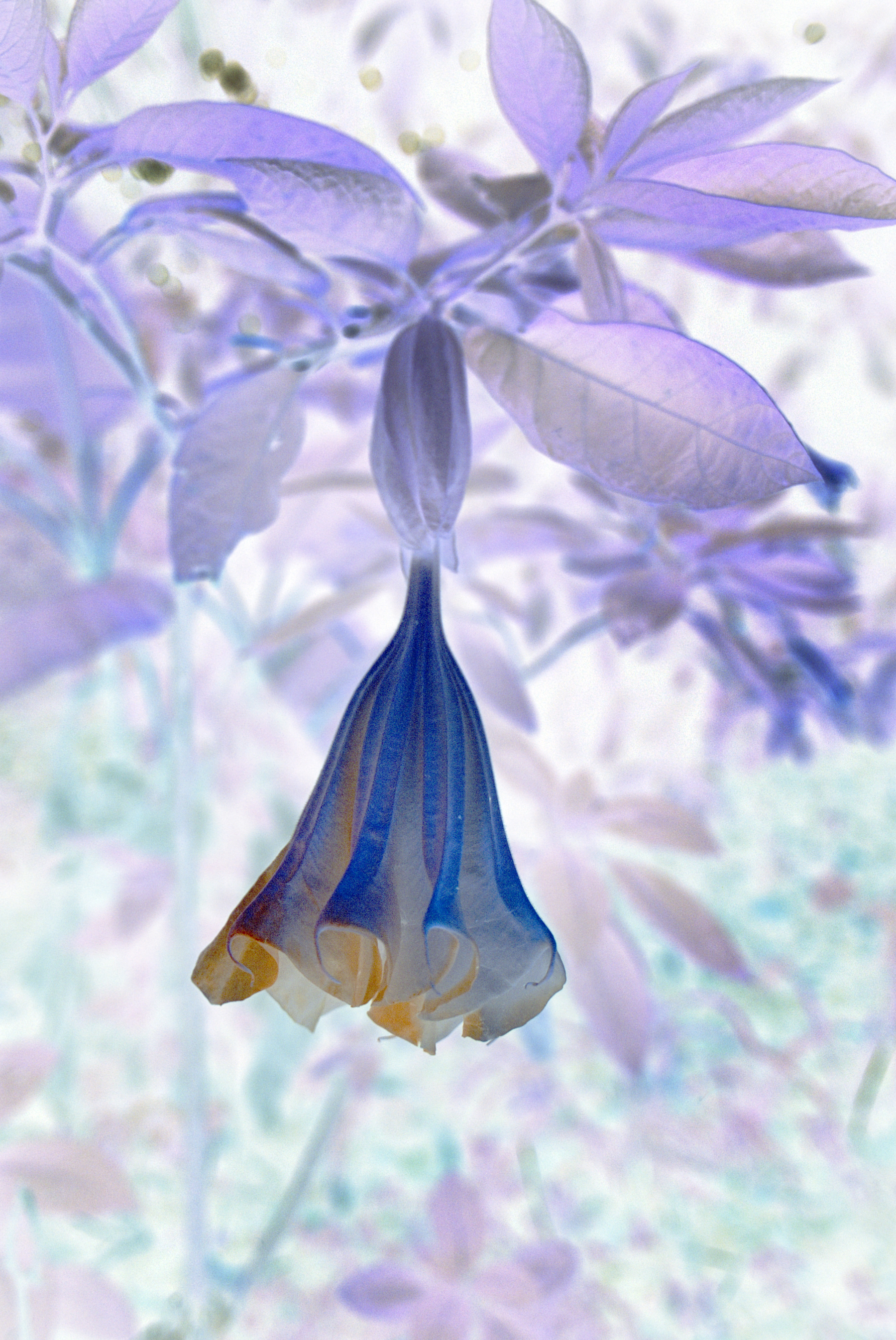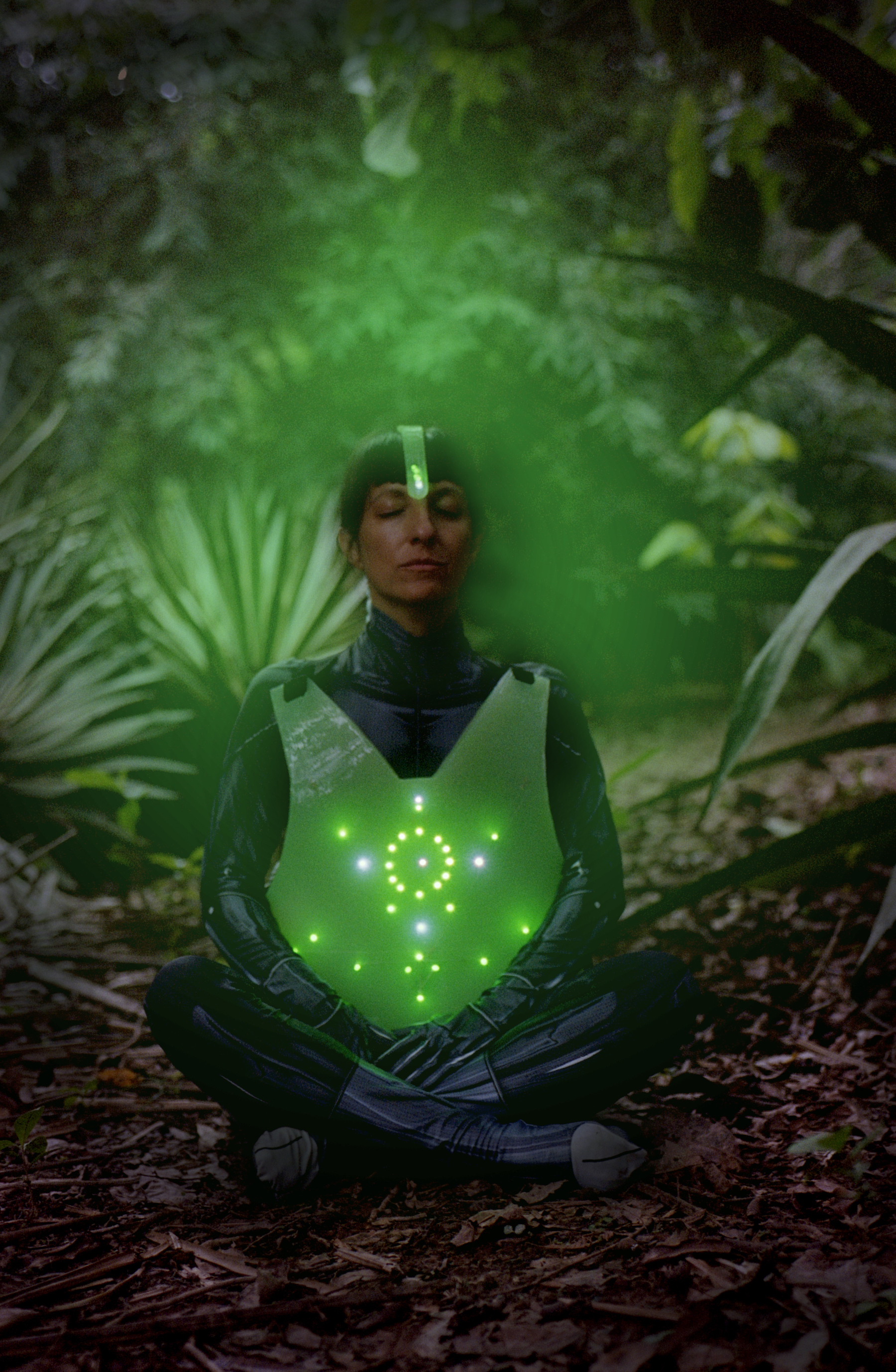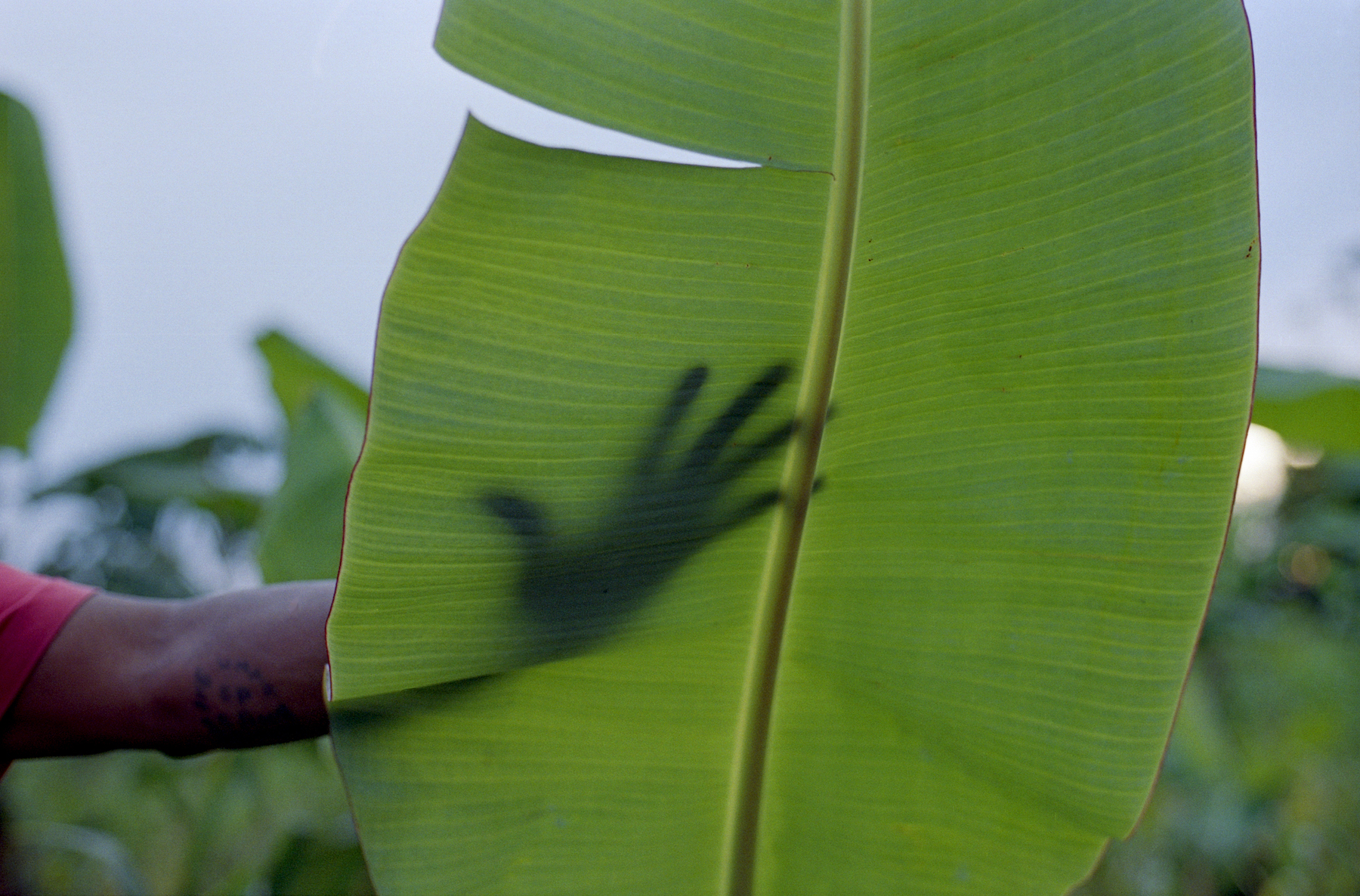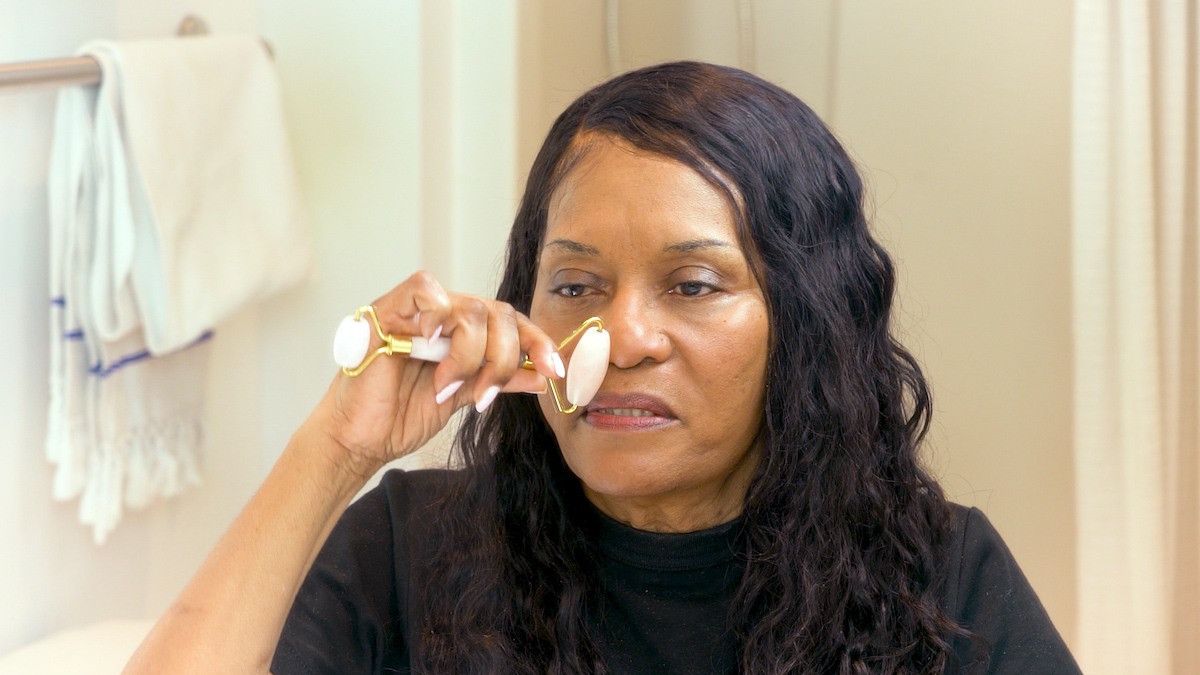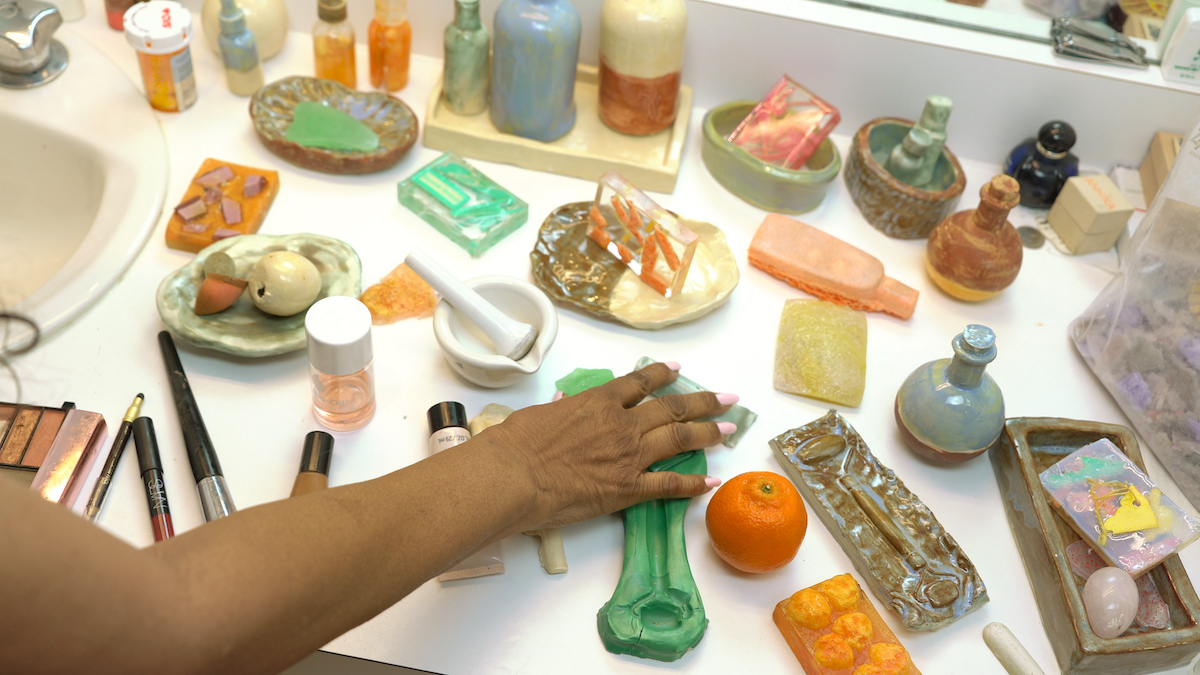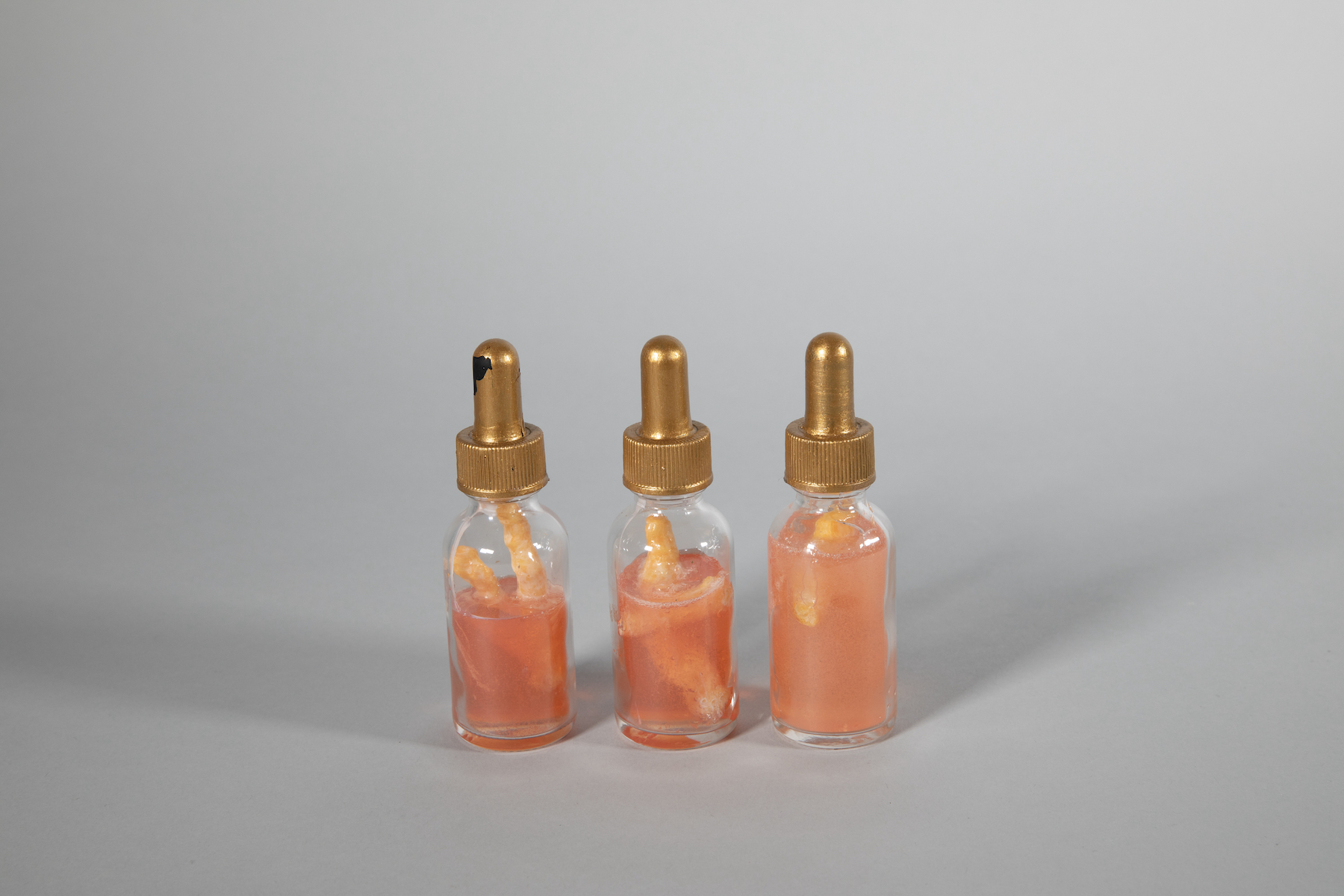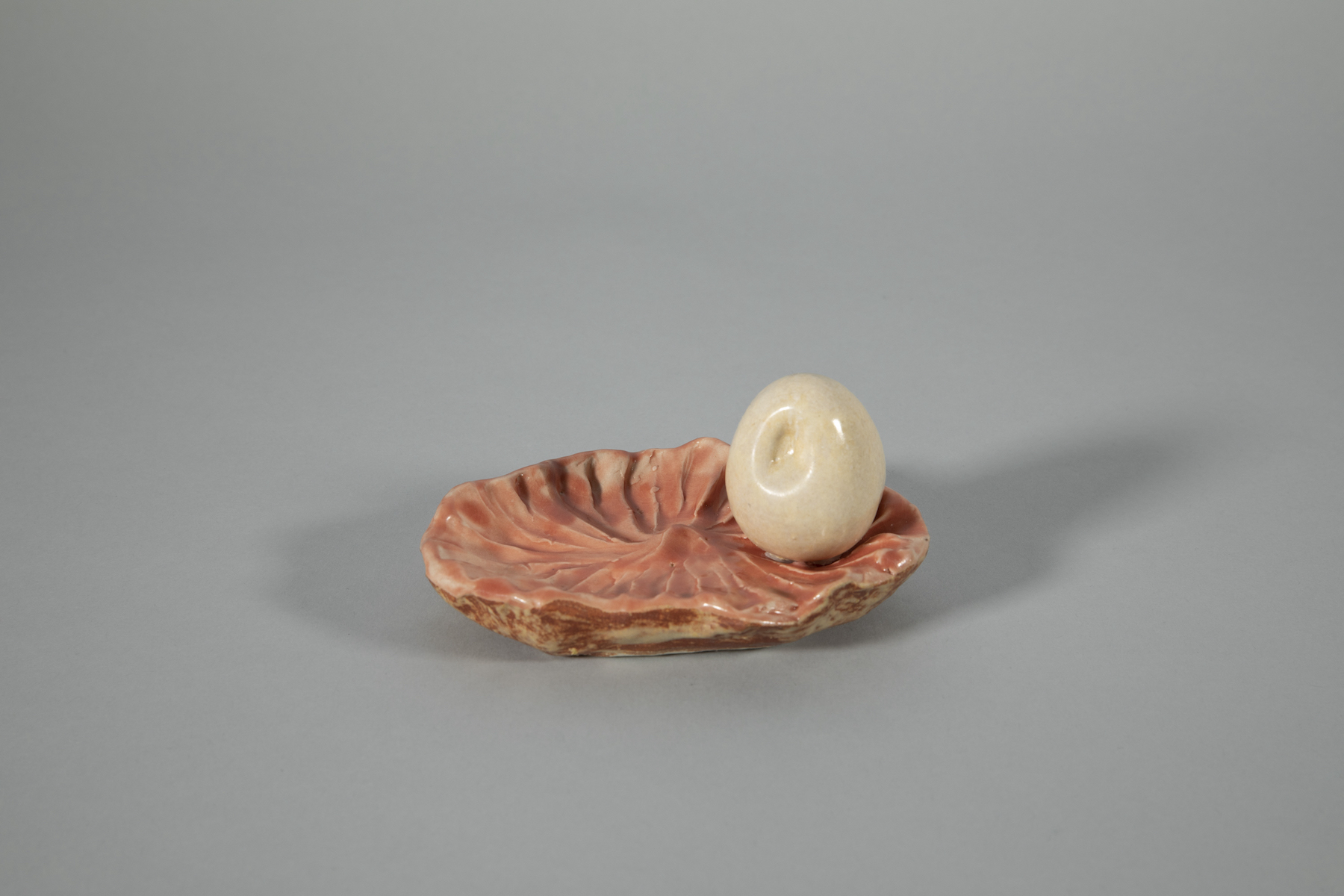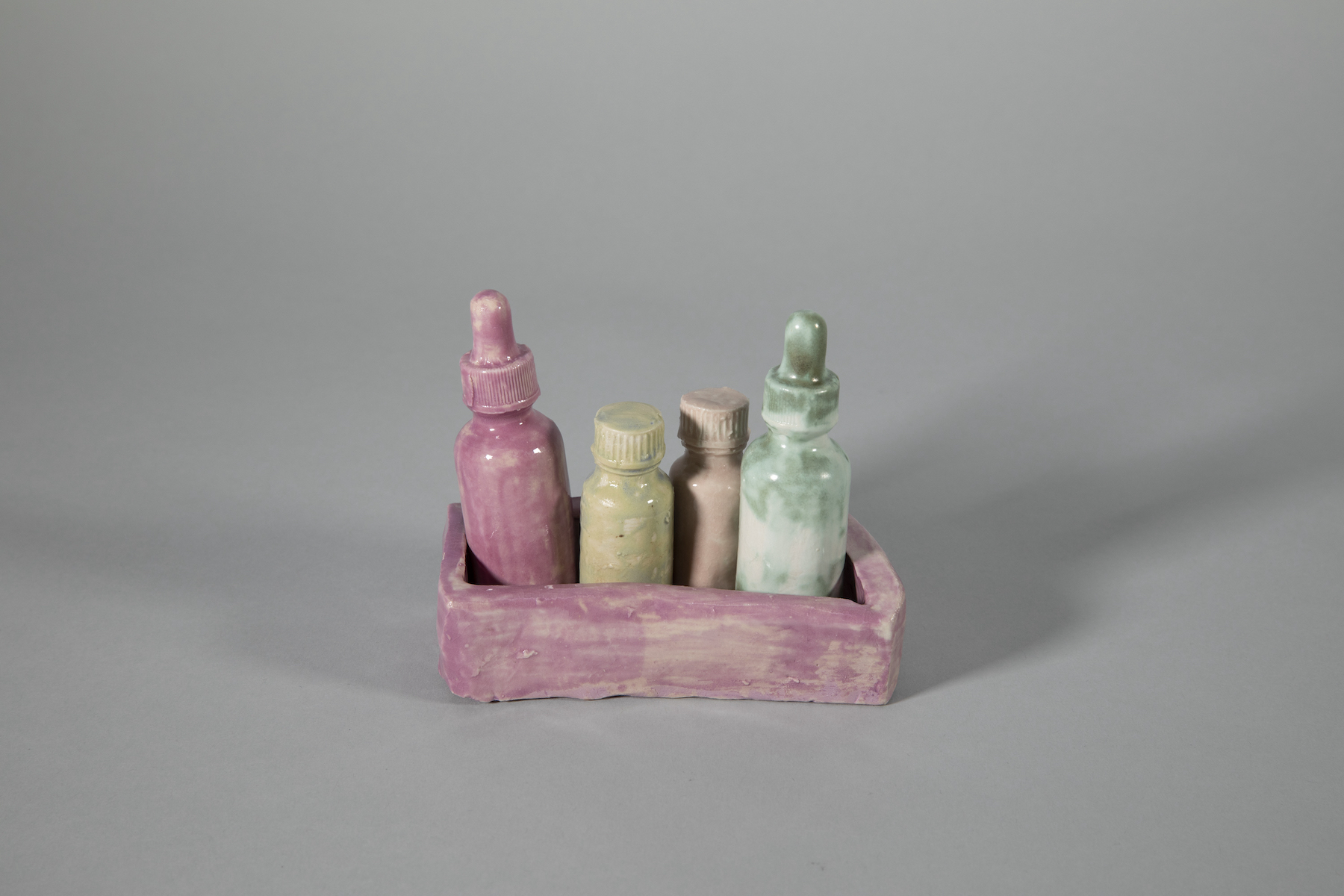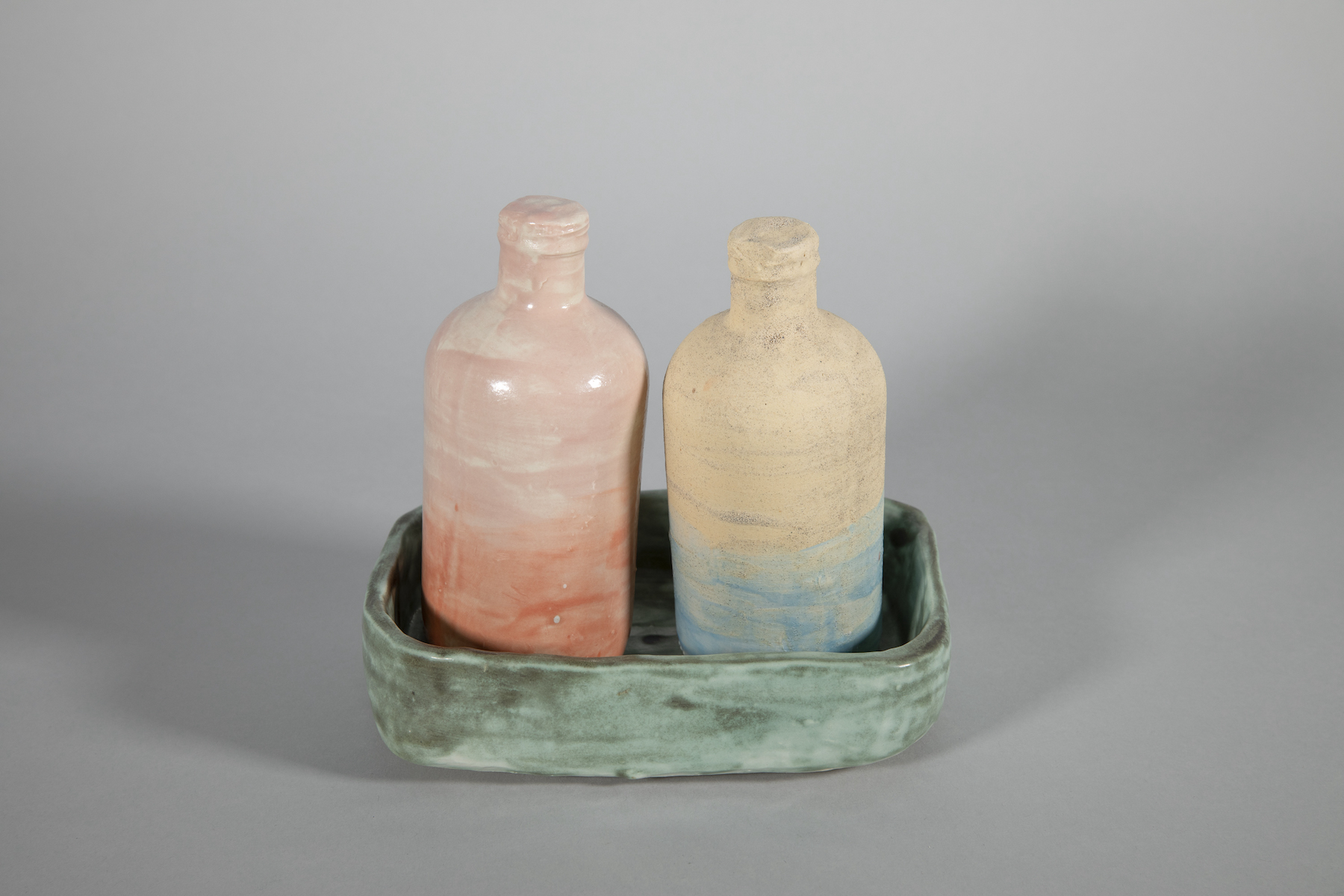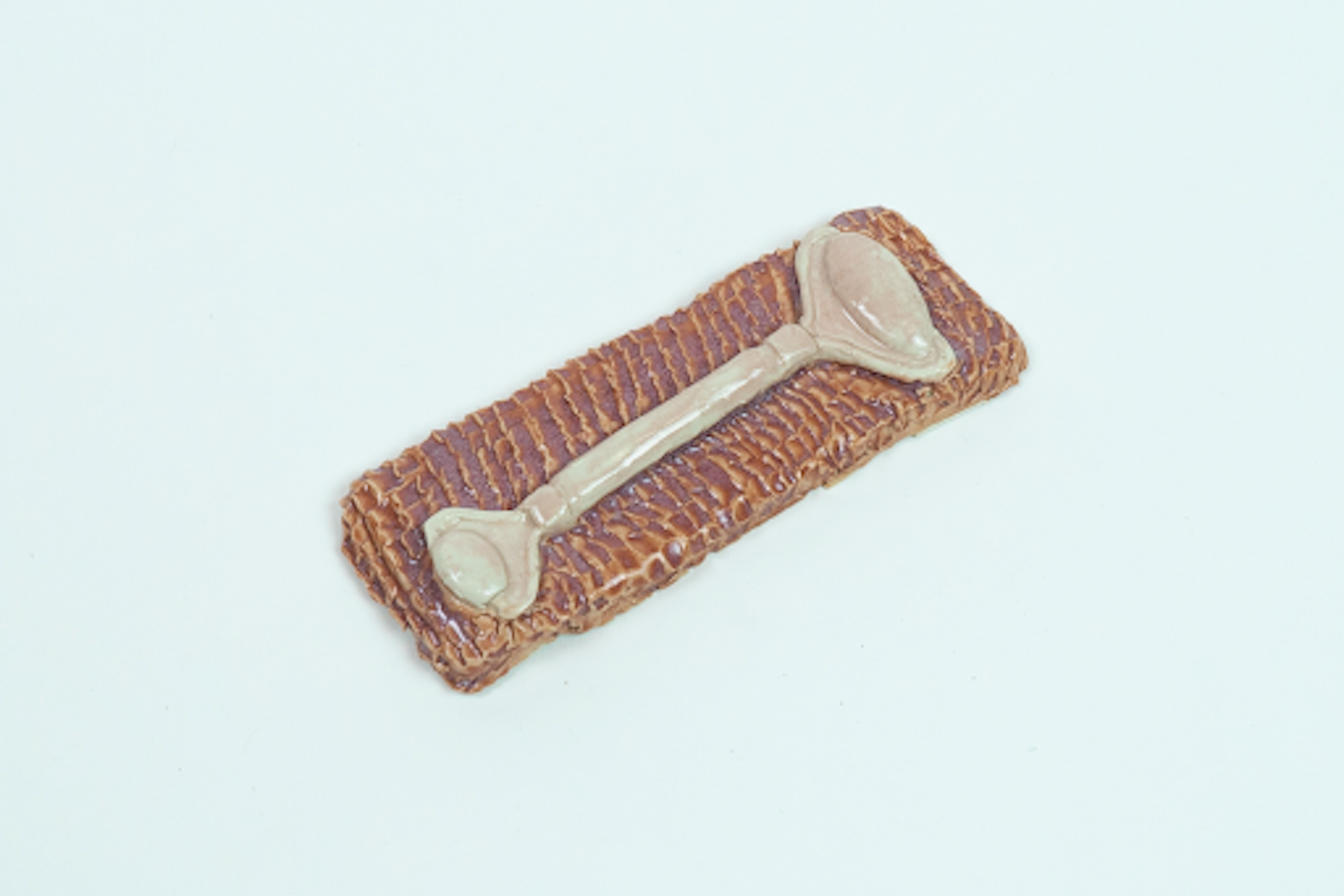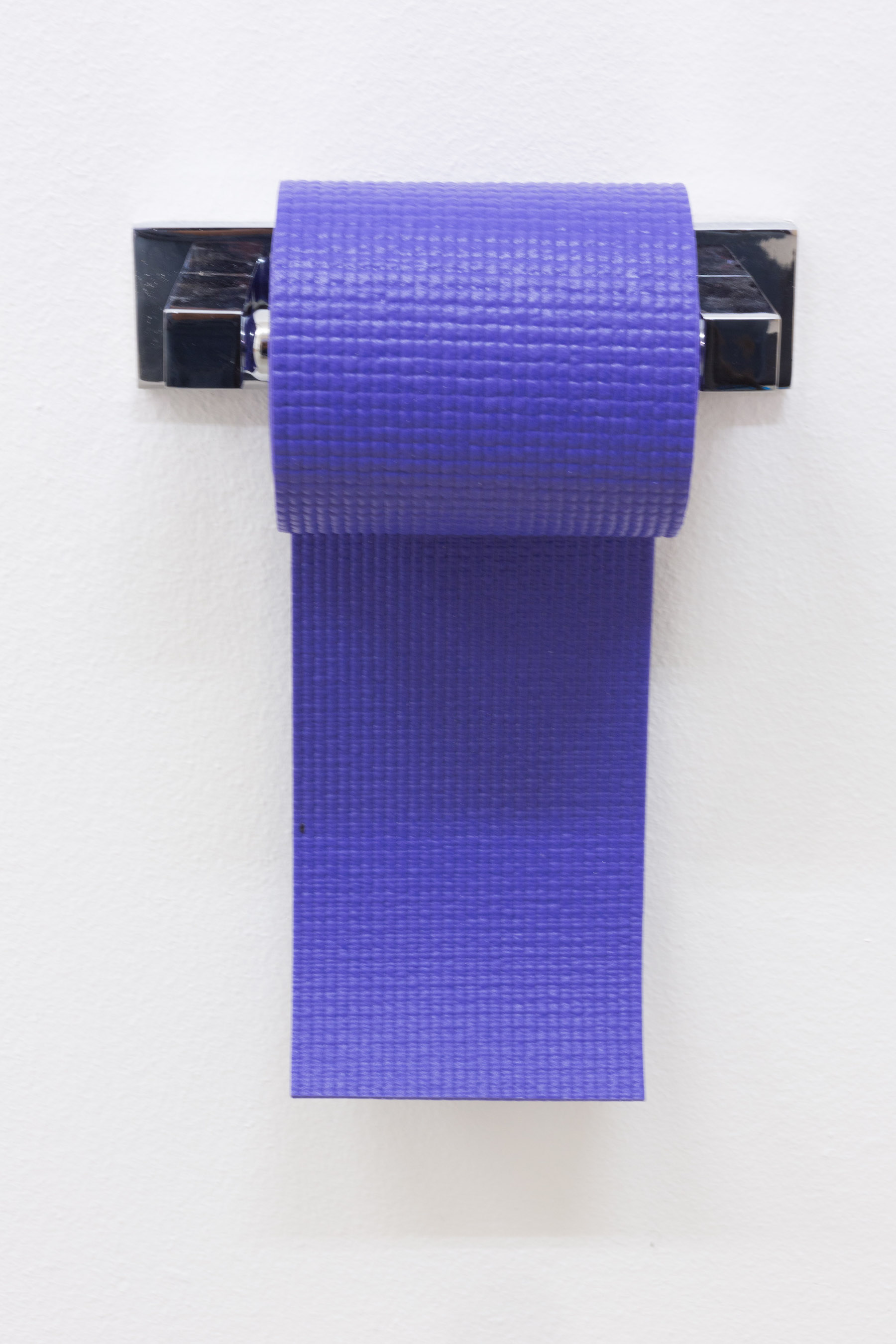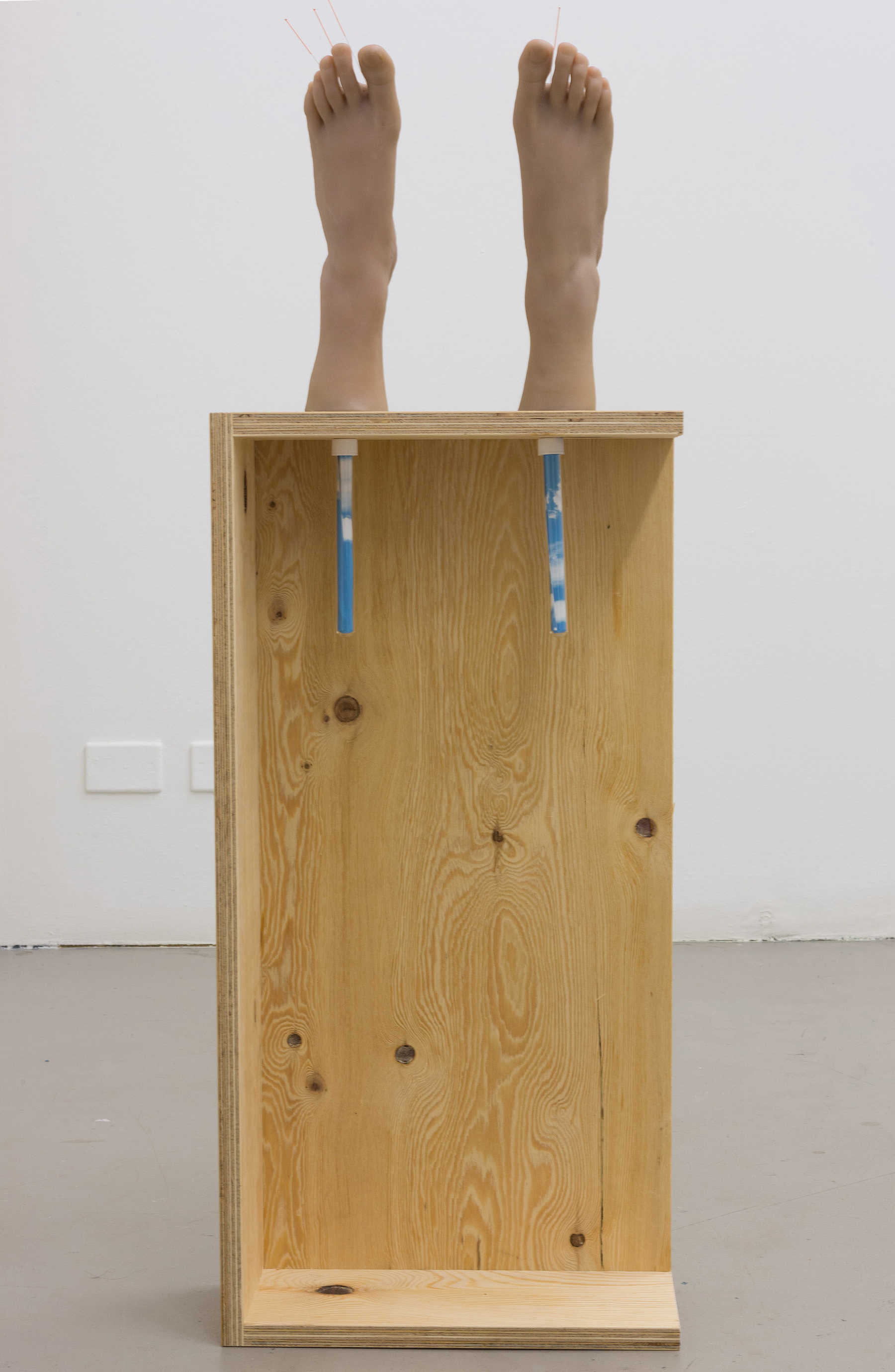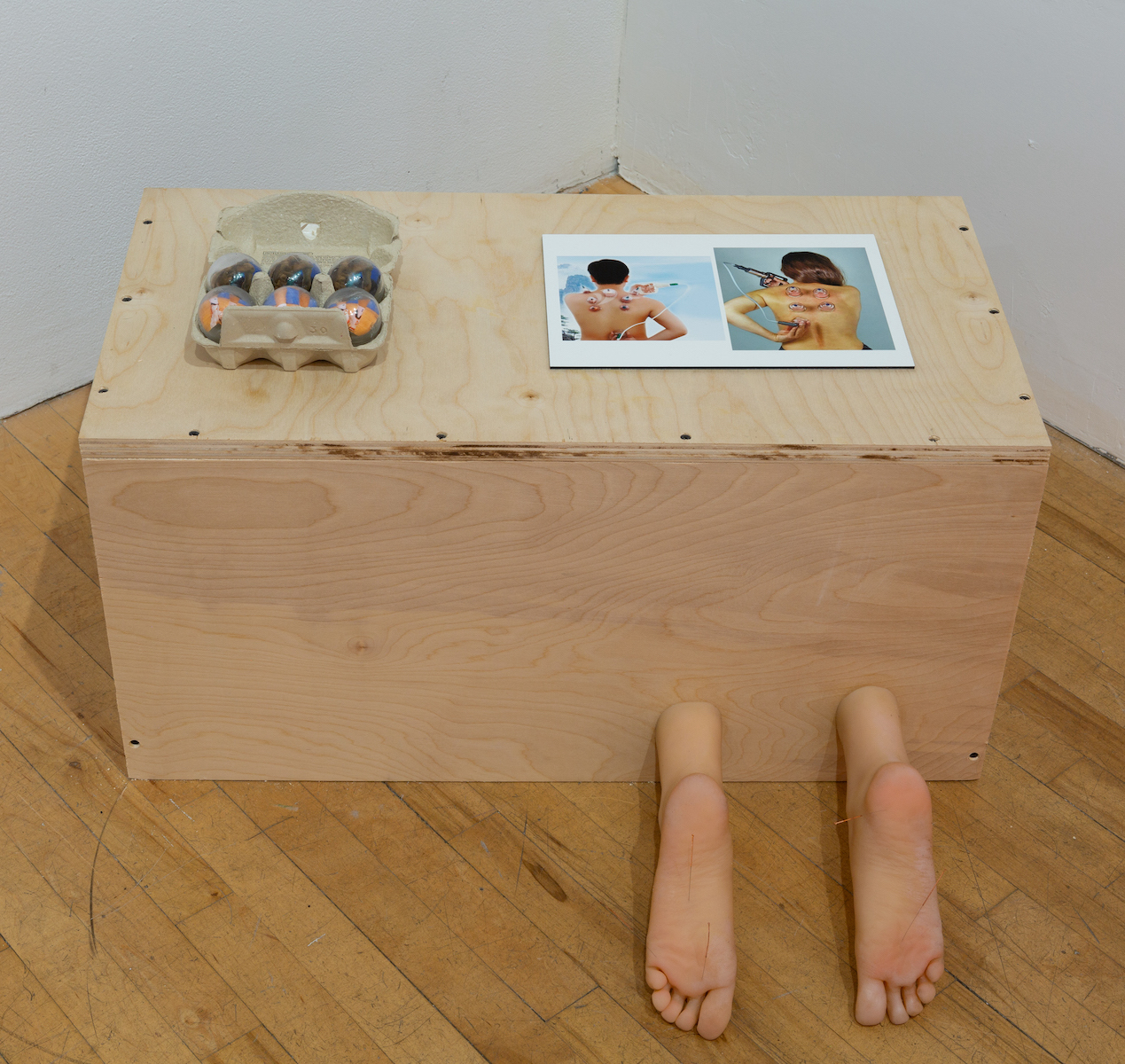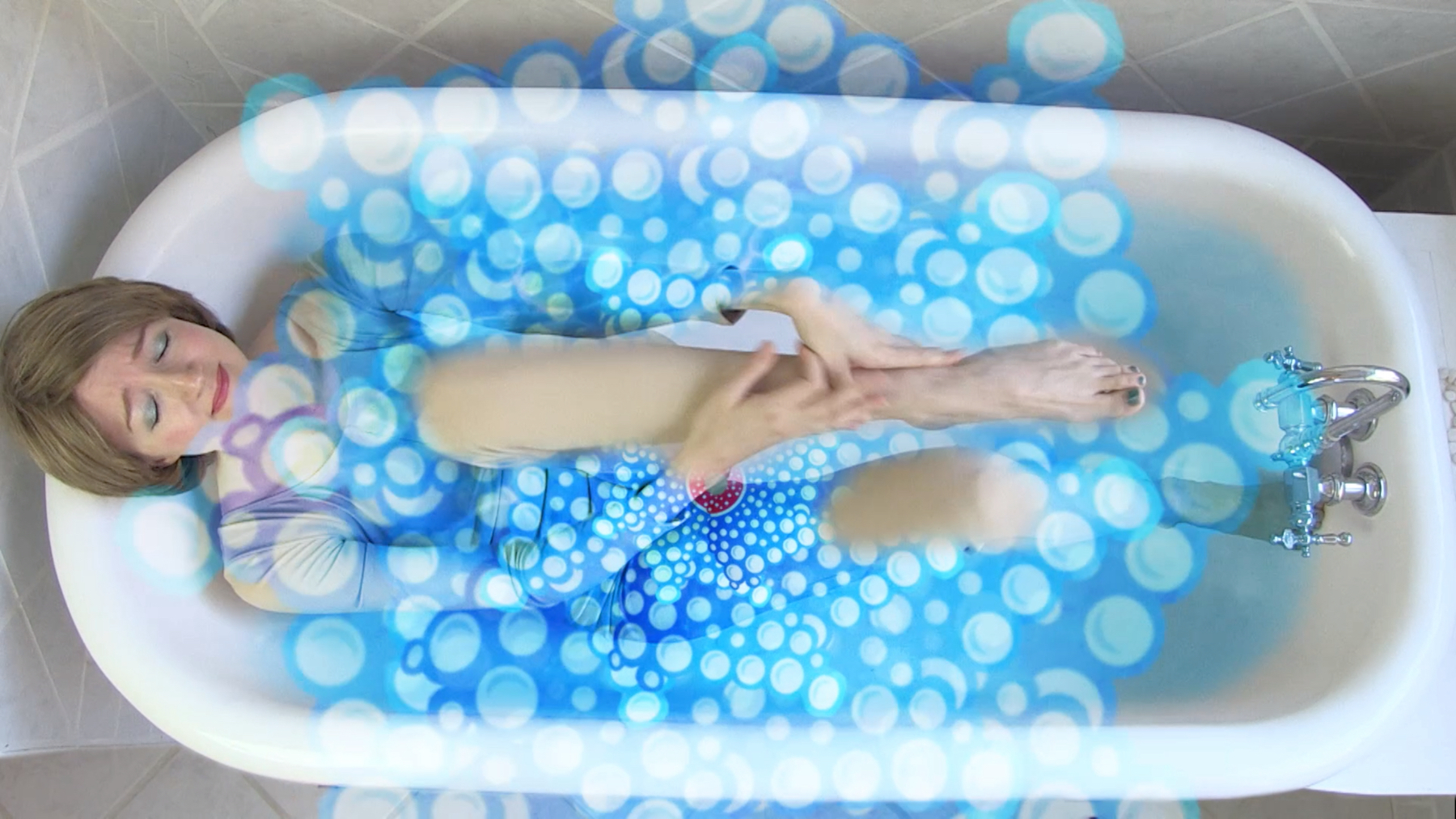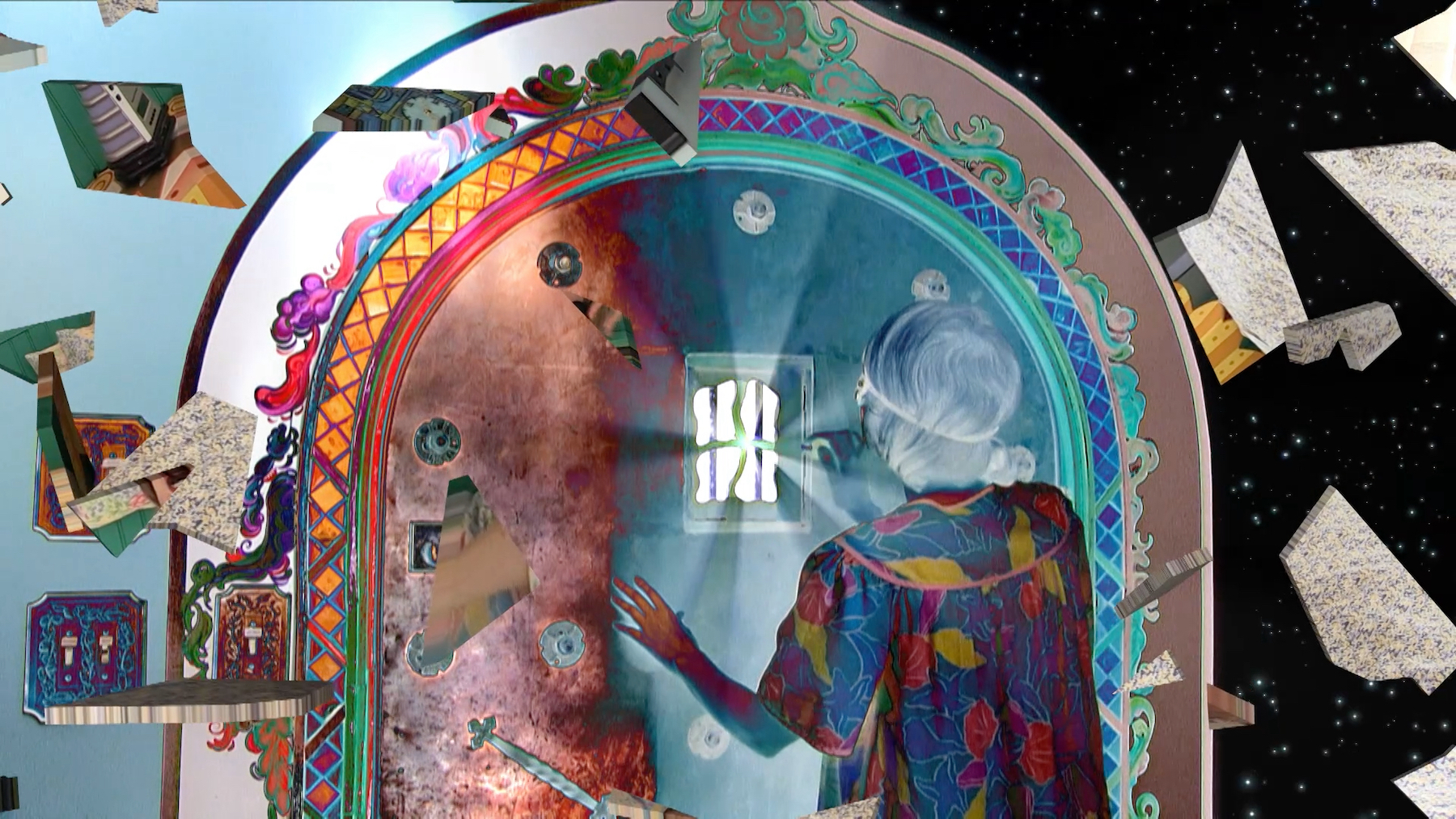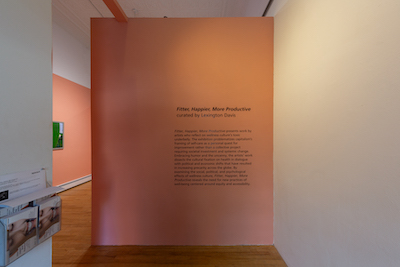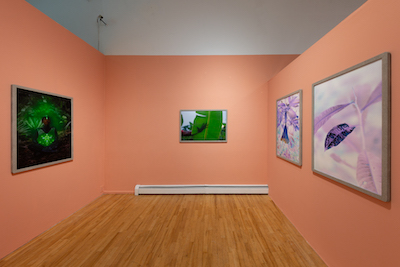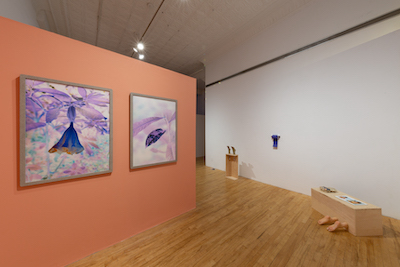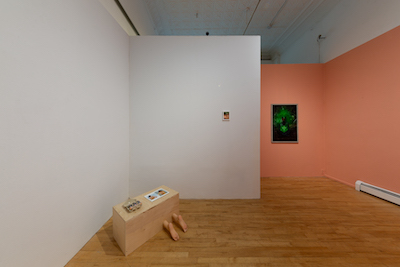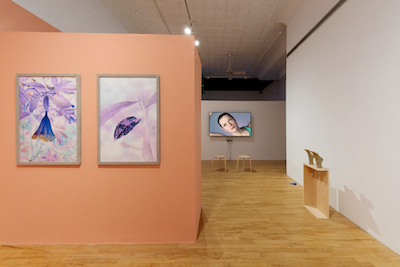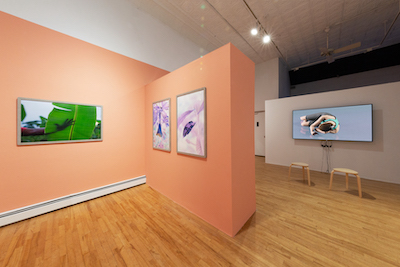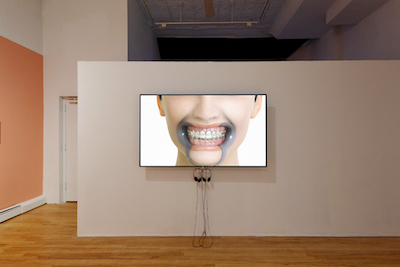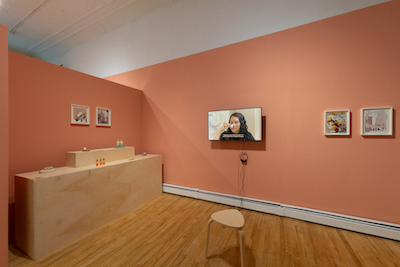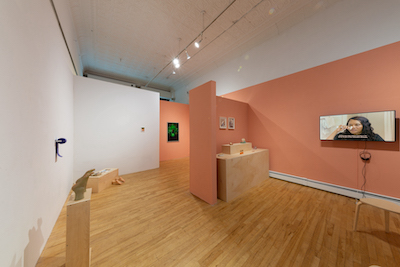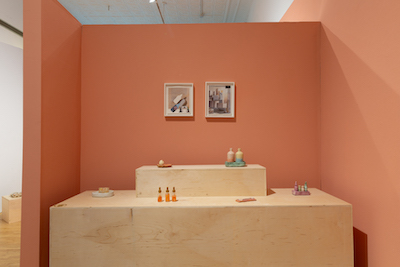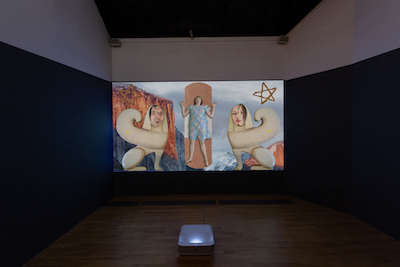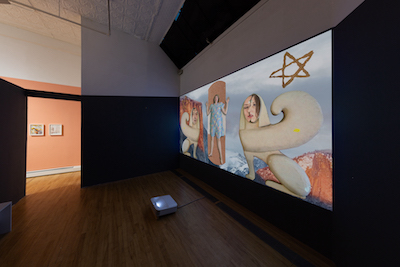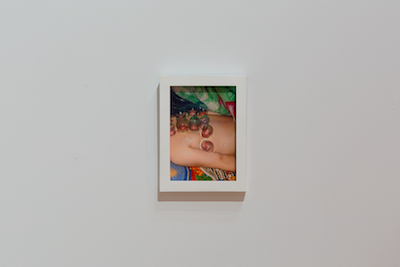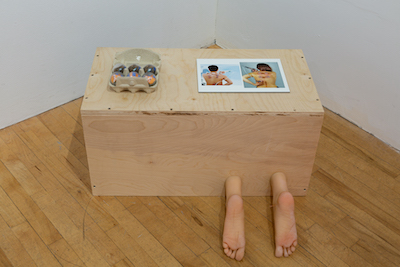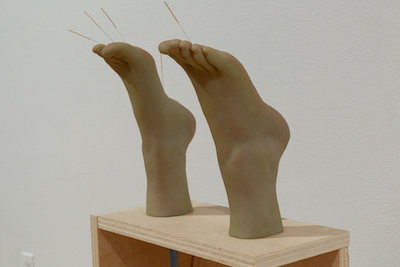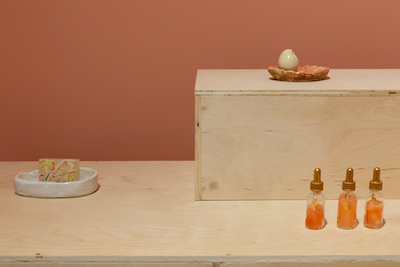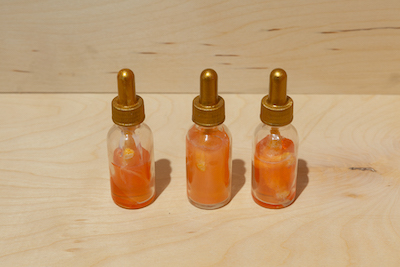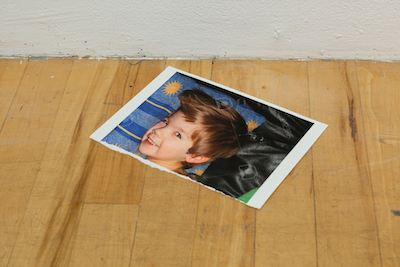Use your up, down, left, and right keys, or click within to navigate.
Kate Cooper, Patricia Domínguez, Ilana Harris-Babou, Maryam Jafri, Shana Moulton & Nick Hallett
Barre classes. Juice cleanses. Meditation apps. Ten-step skincare routines. Athleisure. Mindfulness training. Collagen peptides. Jade rolling. The "self-care" industry ceaselessly introduces trends aimed at improving physical and mental wellbeing, at least for those who can afford the hefty price tag. Such commodities and services are sold as a pathway to personal optimization, evading the question: for what purpose and whose benefit?
Fitter, Happier, More Productive brings together six artists whose work explores the toxic underbelly of capitalist wellness culture. The exhibition problematizes capitalism's framing of wellness as a personal quest for self-improvement rather than a collective project requiring societal investment and systemic change. Instead of offering opportunities for reflection and renewal, wellness culture conditions us to see life as another mode of work, and work as the defining feature of life. By marketing self-care as an individualistic endeavor, capitalism gaslights the public into believing that issues created by corporate greed and a gutted welfare state might be solved by an açaí bowl, a yoga retreat, or twenty-five units of Botox.
In contrast, the exhibition's artists propose understandings of wellbeing that confront socio-political histories, environmental degradation, and structural inequalities. By examining the social, political, and psychological effects of wellness culture, the exhibition reveals the need for new practices of wellbeing inspired by activists like the Combahee River Collective and Audre Lorde, who saw self-care as a radical "act of political warfare." Through engagement with overlooked histories and social conditions, Fitter, Happier, More Productive highlights how wellness practices might be transformed from capitalist labor into tools of resistance.
Lexington Davis is an AHRC-funded PhD candidate at the University of St. Andrews, where her research explores feminist art and domestic labor politics. She has previously held curatorial positions at the Stedelijk Museum, Amsterdam and the Los Angeles County Museum of Art. Her work has been supported by a Fulbright Fellowship, the Paul Mellon Centre, and the Netherlands Institute in Athens.


